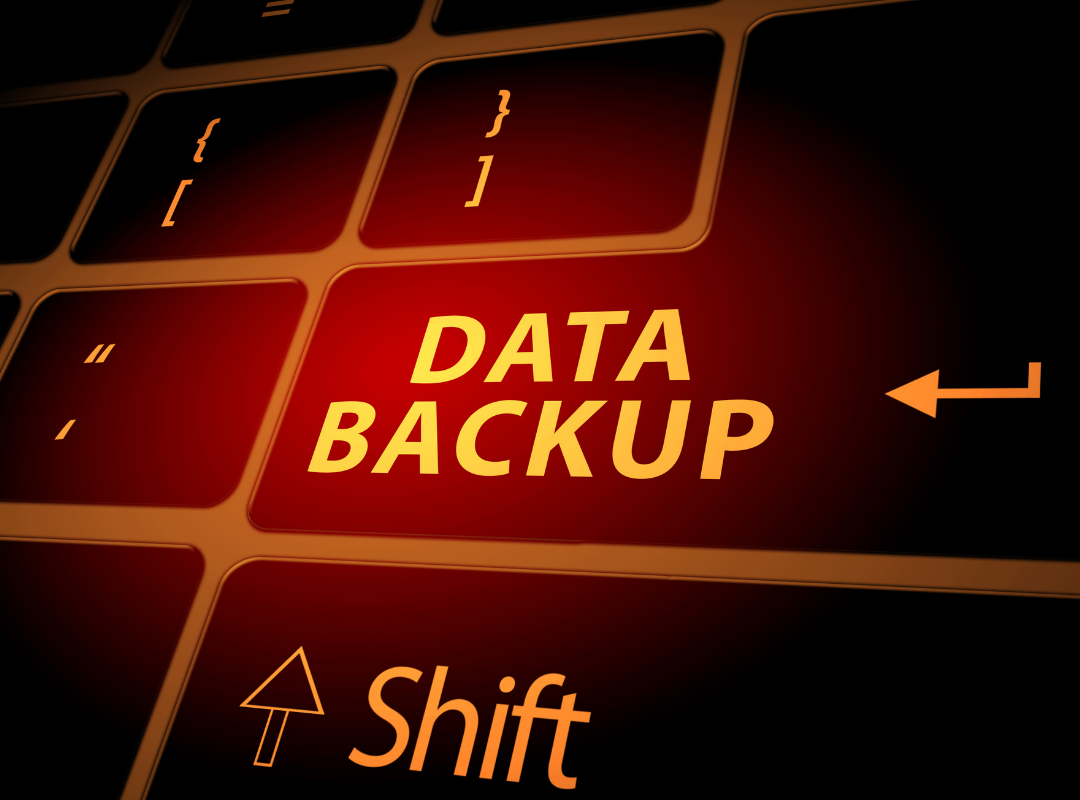Do you ever take the time to consider how much data is in your business? I mean your business holds all the data that makes your business run and a large amount of customer and vendor information as well, or you might have a business that requires your systems to be up and running 24/7 in mission critical operations. In the event that something happened that caused you to lose all of that data, what would you do? Could you continue operating? Would your business recover?
Backing up your data is one of the single most important things you can do for your business. Not backing up your data means putting your business at a huge risk. A computer could crash once, and a business could lose all the critical data saved on that computer and never get it back.
Did you know that a computer crashing or getting a virus is not the only way you can lose your data? Data loss can be caused by a number of things and being fully aware of those types of data loss and how to prevent it is crucially important for any business.
Let’s go through some of the most common data loss risks and how to avoid them.
7 Causes of Data Loss
1. Human Error
Don’t overlook how easy it is for fallible humans to mistakenly overwrite or delete data. Human error including deleting files, spilling liquids, hardware damage, and software corruption are common threats to data security.
It is easier to prevent data loss than it is to recover lost data. Educating employees on data management, automating as much as possible through software, and having a back up system in place can make all the difference in combatting human error.
2. Viruses and Malware
Most of us associate data loss with viruses and malware, the big bad viruses and malware that find a way onto our computers and creep around gathering all of our personal data bringing down an entire operation and causing complete loss of production simply by someone having clicked on an email or downloaded something off a website. These are especially sneaky.
Ensure your business has appropriate anti-virus and malware protection software in place. Combining this with regular system backups will provide extra security for your data.
3. Hard Drive Malfunction
Hard drives are very fragile and actually cause the majority of data loss incidents. Most hard drive malfunctions are caused by mechanical issues like when a computer overheats. Other issues can occur from computers being dropped or mishandled.
If you notice your computer regularly overheating, processing slowly, freezing frequently or crashing. These are a few of the signs that indicate your hard drive could be failing.
Keeping your devices clean, handling them delicately, performing updates, and ensuring your system just isn’t outdated are ways to better protect your hard drive.
4. Power Outages
When a computer is suddenly closed or turned off without proper shutdown it can result in unsaved data. Sometimes entire programs can be no longer functional. Improper shutdown can also cause corrupted files, and if it happens frequently can even cause the hard drive system to lose the ability to ever start up again.
Sudden power outages happen sometimes without warning. Ensure your business uses surge protectors to help prevent possible damage. Also, having a generator if possible, can allow time to properly save data or back up data.
5. Theft
The modern workplace is growing more and more mobile with employees trading in traditional desktop computers for laptops and tablets. The threat of losing data due to laptop and tablet theft is serious and increasing. While mobile devices can make day-to-day operations more convenient, they can also make theft more convenient.
Having a daily lock-up protocol for mobile devices like laptops and tablets can be a preventative measure thwarting the attempts of would-be thieves. Anti-theft software installed on these devices allows them to be tracked if stolen and often includes the option to remote wipe the device ridding it of valuable data so a thief cannot access it.
6. Water Damage
Spilling water, coffee, or any type of liquid can cause a short circuit, usually causing data loss to a hard drive. Sometimes initially, a computer may seem to work fine after a spill but will eventually short circuit.
Making an attempt to keep liquids at a fair distance from laptops and computers is a good idea. Using spill-proof containers for liquids is even better. If an unexpected spill does occur, properly shut down the computer immediately and attempt to dry it as much as possible. If possible, have a tech take the computer apart to ensure a thorough drying process. Cleaning ASAP is the best approach.
7. Disasters
Disaster by definition are events that happen suddenly and cause catastrophic damage. These are events that we likely cannot prevent. From hurricanes, to earthquakes, fires, floods, and tornadoes, disasters, while not very likely, can and do happen and can destroy computers, data, even entire businesses.
Disasters can destroy the entire physical business as well as all the data leaving it sometimes completely impossible to recover any lost data.
It is so crucial to back up data in a remote location to protect from any possible data loss.
Having the proper measures in place to ensure your business and your data are properly backed up can make or break a business. The best offense is a good defense and being proactive rather than reactive is the way to build the best offense.
IT professionals like Brea Networks offer preemptive maintenance, desktop and infrastructure support, cybersecurity, and optimized business continuity. Contact us today to ensure your business stays secure and productive at affordable prices and the highest level of quality and efficiency.





